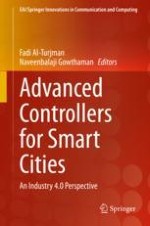This book provides basic knowledge of advanced microcontrollers associated with large systems and devices. The book determines the feasibility of the advanced controllers from an Industry 4.0 perspective, which is associated with Integrated Internet of Things (IIoT) when developing larger smart cities. Also, it describes potential applications, key areas of Industry 4.0, and controlling applications with microcontrollers. Chapters include IoT with integrated control applications in smart city paradigm; agriculture, public safety, women and child care & welfare; healthcare, water management, government and administration; environmental impact, energy with management of information systems; and safety, education, transportation systems with advanced controllers.
